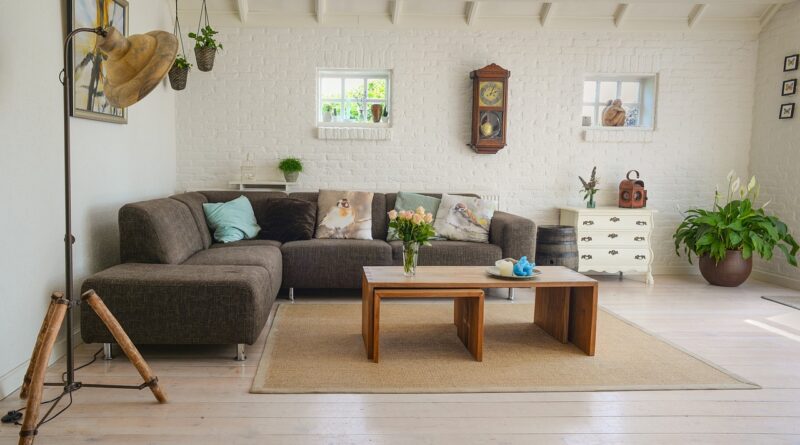The Power of Minimalism: Decluttering Your Space, Decluttering Your Mind
Arjun sat cross-legged on the hardwood floor of his one-bedroom apartment in Mumbai. Around him were unopened Amazon boxes, decades-old books he had never read, half-broken lamps, and a jumble of outdated electronics. He had lost his job two weeks ago, was fighting a constant state of anxiety, and hadn’t slept well in months.
That afternoon, he had a breakdown. Surrounded by stuff, his thoughts felt equally congested—fragmented, scattered, and suffocating. A random YouTube video on the “power of minimalist living” played in the background, and something clicked. That night, he filled five garbage bags and took them out. It was his first step toward clarity—and peace.
Arjun’s story is not uncommon. In a world overloaded with consumerism, digital noise, and social expectations, many individuals are rediscovering the transformative power of minimalist living. It’s more than a trend—it’s a lifestyle shift that promotes emotional clarity, mental wellness, and sustainable living.
Understanding the Philosophy Behind Minimalism
Minimalism is the intentional promotion of the things we value most and the removal of everything that distracts us from it. It’s not about deprivation but about purposeful living. When your space is clear, your mind often follows. Minimalism can be applied to physical surroundings, digital spaces, schedules, and even relationships.
Key Tenets of Minimalism:
- Intentionality: Every item or commitment serves a purpose.
- Mindfulness: Conscious decision-making about consumption.
- Freedom: Liberation from the trap of materialism.
- Sustainability: Consuming less equals a smaller carbon footprint.
The power of minimalist living lies in its simplicity—it clears the clutter that clouds mental well-being.
Psychological Impact of Physical Clutter
A growing body of research supports the idea that clutter negatively affects mental health. Cluttered spaces have been linked to higher levels of cortisol (the stress hormone), anxiety, depression, and even procrastination.
The Mind-Clutter Connection:
- Distraction: Physical clutter competes for your attention.
- Decision Fatigue: Constant exposure to unnecessary choices reduces cognitive energy.
- Emotional Baggage: Items from the past may trigger guilt or sadness.
- Reduced Productivity: Visual chaos leads to mental chaos.
In a 2016 study published in Personality and Social Psychology Bulletin, people who described their homes as cluttered or unfinished were more likely to be depressed and fatigued than those who described their homes as restorative.
Minimalist Living and Mental Health
Beyond aesthetics, the power of minimalist living shows profound mental health benefits. When we simplify our lives, we create space not just in our rooms but in our thoughts.
Mental Health Benefits:
- Clarity of Thought: Fewer distractions lead to better focus.
- Calmness: Clean environments contribute to inner peace.
- Greater Self-awareness: Letting go of excess helps identify true needs and desires.
- Improved Sleep: Studies show minimalist bedrooms enhance sleep quality.
- Lower Anxiety: Simplified surroundings reduce overstimulation.
Digital Decluttering: Clearing the Invisible Clutter
Digital clutter is just as invasive as physical mess—perhaps even more. Endless notifications, dozens of tabs, and digital hoarding disrupt our mental bandwidth.
Tips for Digital Minimalism:
- Unsubscribe from unnecessary newsletters.
- Delete unused apps and files.
- Turn off non-essential notifications.
- Adopt inbox-zero strategies.
- Schedule screen-free time.
Embracing the power of minimalist living in digital realms can restore attention spans and reduce mental fatigue.
Real-Life Applications of Minimalism
Minimalism doesn’t mean selling everything you own. It’s about aligning your possessions, time, and energy with your values. Here’s how it works across life domains:
1. Home
- Keep only what you use or love.
- Create clean, open spaces that foster calm.
- Reduce furniture to essential pieces.
2. Work
- Clear your desk every day.
- Prioritize tasks using minimalist project management tools.
- Say no to unnecessary meetings or obligations.
3. Wardrobe
- Adopt a capsule wardrobe.
- Donate rarely worn clothes.
- Focus on timeless pieces over fast fashion.
4. Relationships
- Invest in meaningful connections.
- Let go of toxic or energy-draining relationships.
- Make time for deep conversations rather than social obligations.
5. Mindset
- Embrace gratitude and sufficiency.
- Meditate to clear mental clutter.
- Define your core values and align actions accordingly.
How to Begin Your Minimalist Journey?
Beginning the minimalist lifestyle doesn’t have to be radical or intimidating. It starts with awareness and small steps.
Beginner’s Checklist:
- Start with one drawer or shelf.
- Follow the “one in, one out” rule.
- Ask: “Does this bring value or joy?”
- Declutter weekly, not once a year.
- Celebrate each step, however small.
Document your progress with photos or journaling. The power of minimalist living is cumulative—it builds momentum over time.
Myths About Minimalism Debunked
Common Myths:
- Myth: Minimalism is only for the wealthy.
Truth: It’s accessible and can actually reduce financial strain. - Myth: You must live in an all-white house with no décor.
Truth: Minimalism is about intentional design, not aesthetics. - Myth: You have to give up everything.
Truth: Keep what adds value; eliminate what doesn’t. - Myth: It’s boring.
Truth: Freedom from clutter enhances creativity and joy.
Conclusion: Less Is Now
Minimalism is more than a design trend—it’s a pathway to emotional freedom and mental clarity. As more people realize the cost of chaos—physically, emotionally, and cognitively—they are embracing the power of minimalist living not just to clean their spaces but to reclaim their minds.
The world is noisy. Spaces are full. Minds are busy. But you don’t have to follow that path. Whether it’s removing clutter from your home, saying no to excess commitments, or simplifying your digital world, every act of minimalism is a step toward liberation.
Get updates and read additional stories on the Health Orbit Fan Page.
For Guest posts, Sponsored posts and other details, please click ‘Contact Us’ page.




